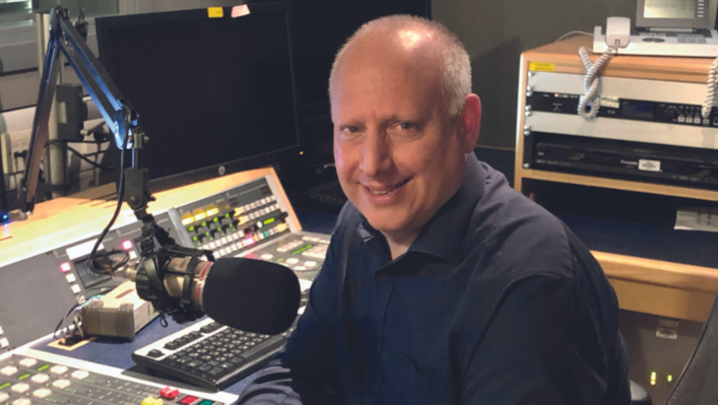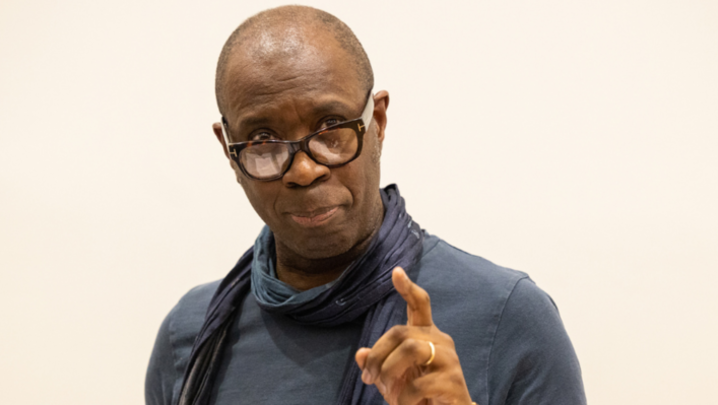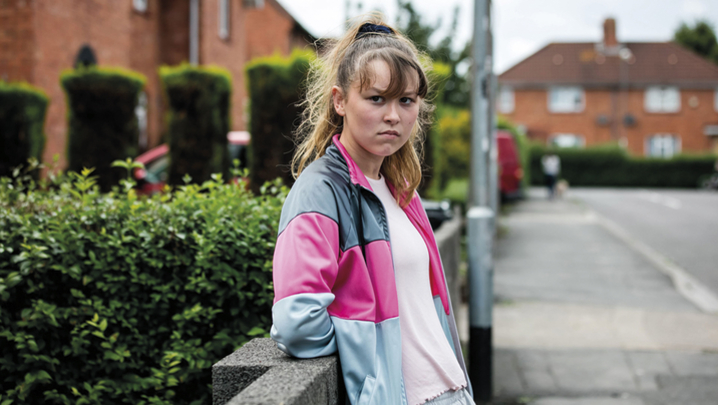Veteran journalist Peter Taylor explains why he believes that impartiality, accuracy, fairness and trust lie at the heart of the BBC.
In his stirring Steve Hewlett Memorial Lecture, “Integrity in television: 50 years through the lens”, award-winning journalist Peter Taylor offered a powerful defence of the BBC.
Before he began, Taylor paid tribute to Hewlett, a “former colleague and friend, who produced two of the films of which I am most proud: The Maze: Enemies Within and Remember Bloody Sunday. He was great to work with. Tough minded, sharp and meticulous.”
"Integrity in television… [means] impartiality, accuracy, fairness and trust – the principles that are the bedrock of the BBC and public service broadcasting…. I will explore these principles through the lens of my 50 years as a reporter [then] I will consider how they apply given the challenges the BBC faces today, not least in maintaining its integrity in a hostile political environment…
Over 50 years, I have covered many conflicts – from Vietnam to the miners’ strike, from the Middle East to Iraq and WMD, from Al Qaeda to Isis, and from the secret state to smoking – but it is to the Irish conflict that my lens has always returned…
Integrity… and BBC guidelines oblige us to reflect the reality of events and not to overly sanitise our reporting. When conducting interviews… I did them to explore and question the motivation for their actions. The “Mujad” – the jihadist, Salim Boukari, was radicalised by seeing the suffering of Palestinians in the West Bank and Gaza and Muslims in Chechyna… Jim Light murdered an innocent Catholic to get the nationalist community to put pressure on the IRA to stop the killing.
In Northern Ireland, I did feel an obligation to fairness and accuracy, to reflect all sides of the story – which I did at the turn of the century in my BBC trilogy, Provos, Loyalists and Brits – exploring all three sides of the Irish conflict. And I could only make those programmes because of trust on all sides…
It took years to establish trust in Northern Ireland…. These bitter divisions place an even heavier responsibility on journalists, with each side of the divide, metaphorically, ready to shoot the messengers for the news – whether they report for the BBC, ITV, Channel 4 or Sky. And the BBC is first in the political firing line… despite the fact that the BBC is, by far and away, the most trusted broadcaster for news, countering the osmotic and potentially corrosive effect of social media…
The freedom and the independence of the BBC and its journalism are challenged by endemic hostility to it in some quarters of today’s Conservative Party – echoed by its supporters on the ground and in the media. The hostility is held to be institutional – against the idea of a publicly funded, public service broadcaster – and ideological, when it comes to the licence fee, which some politicians see as an unwarranted and unwanted tax…
Director-General Tim Davie has faced a Herculean task in steadying the ship, restoring morale and letting the Government know that the BBC hears what it says. His “10-point impartiality plan” and other measures designed to enshrine the BBC’s values are intended to send a message to the DCMS – the body that will set the licence fee next April – that the BBC’s house is being put in order…
The culture secretary, Nadine Dorries, has accused the BBC of snobbery and of a kind of “group think” that excludes working-class people. Again, I beg to differ. I was brought up in a council house in Yorkshire. Our spoons were not silver – and I went to a state school.
The BBC that I know and see today is not elitist, or sexist or racist – although there are others who would challenge this. It embraces all genders and ethnicities – and has done more to reflect the society of which it is a part. It is unrecognisable from the BBC I began working for over 40 years ago.
Crucial though impartiality is, what underpins the BBC – and makes it central to our freedom and democracy – is its independence of government… Without its independence… the BBC risks becoming a mouthpiece for whoever holds the keys to No 10.
If that independence is sacrificed, a vital cornerstone of our democracy dies with it. And the BBC isn’t the only public service broadcaster at risk. There are concerns, too, about Channel 4’s independence if plans to privatise it bear fruit…
In the end, integrity in television – impartiality, accuracy, fairness and trust – depend on independence. We can no longer take the BBC’s existence for granted. It is engaged in a life or death struggle, which those at the helm know they have to win. The fact is, the Government holds the purse strings and sets the licence fee on which the BBC depends.
Without adequate funding, the BBC simply cannot compete and, in the long term, risks being suffocated by the bottomless billions of the streaming giants. Despite financial restrictions, BBC documentaries are still outstanding – I’m thinking of programmes such as Blair & Brown and Once Upon a Time in Iraq. The BBC’s rivals also make many outstanding documentaries, such as ITV’s Storming the Capitol and Channel 4’s The Cult of Conspiracy: QAnon…
But the real world in which the BBC now operates is painful. Budgets are cut, morale is low, hundreds of journalists are being made redundant, retiring or leaving – many of them the most senior and experienced journalists. Esmé Wren, the much-admired editor of Newsnight, is saying goodbye to become editor of Channel 4 News, while John Humphrys, Eddie Mair, Carrie Gracie, John Pienaar, Simon McCoy, Mark Mardell, David Shukman and many others have already gone.
It’s a worrying haemorrhage of vast experience and authority. Fran Unsworth, the director of news and current affairs, is leaving, too, after 40 years, having had the unenviable task of grasping the poisoned chalice of overseeing 450 job cuts and savings of £80m…
Let us hope that, in the strained political climate, the BBC’s editorial processes – with their detailed monitoring and assessment of output against a panoply of protocols – is not the harbinger of a Big Brother culture, induced by political pressure. Thank goodness we’re not China, where its 200,000 accredited journalists have to take 90 hours of continued education to make sure they are “politically firm and professionally excellent”.
The BBC will be 100 years old next October. It’s one of the nation’s crown jewels, embodying the principles of Lord Reith, and admired and envied the world over. The loss will only be felt once it has gone…
I accept the TV landscape – on which I first set foot, half a century ago, as an inexperienced young researcher – has changed beyond recognition. Change is inevitable and necessary to ensure the BBC’s survival.
The BBC is central to our freedoms and the health of our democracy – underpinned by the values I’ve tried to reflect in my 50 years through the lens – the component parts of integrity: impartiality, accuracy, fairness and trust.
Bloody Sunday: integrity under fire
‘Bloody Sunday marks the bookends of my career. My coverage began in 1972 and will continue [in] January with a documentary for Radio 4 to mark the 50th anniversary of that dreadful day…
‘Impartiality, accuracy, fairness and trust were all required to interpret the killings, whose repercussions continue today, with the victims still demanding justice.
Where did truth lie? One side, Catholics and Nationalists, were telling me that innocent civil rights marchers had been shot dead in cold blood by British paratroopers, while the other side, the Paras, insisted they had come under intensive fire from the IRA.
‘At the time, and over the decades that followed, fairness meant letting both sides give their own account of what happened.
‘Bloody Sunday was a supreme test. Fairness – to both sides. Impartiality – not favouring one version of events over the other. And trust – the vital ingredient of getting people to talk. I interrogated both sides and left viewers to make up their own minds…
‘When I reviewed my coverage of Bloody Sunday two years ago for my documentary, My Journey Through the Troubles, I was criticised in some quarters for expressing what appeared to be a personal view.’
[In the documentary, Taylor said: ‘If I’d been a teenager that day on Bloody Sunday, I probably would have joined the IRA. I would have considered taking that final step.’]
‘My remarks were controversial but I don’t believe they breached the BBC’s cardinal principle of “due impartiality” or that they undermined the BBC’s integrity. I used the personal analogy to try to bring home to viewers the powerful emotions and visceral anger that led so many young men and women to join the IRA.
‘Given the requirements of “due impartiality” – and relying on my experience and judgement, having covered the conflict for so many years – I considered my remarks “adequate and appropriate”, given the circumstances.’"
Q&A
What has been lost over your 50 years in TV?
I regret losing the financial backing that we had in the 1970s… ITV was making shed loads of money, which it was investing in programmes such as This Week, World in Action and The World at War. Also, in those days things were much simpler… it was much easier to get a commission because you knew the people you were working with and where the chain of command went – today it’s much more complicated.
And what has improved?
Diversity…. When I look around the BBC today… it is unrecognisable from the BBC of 1980 when I started working for [it] and I welcome that.
Does the same appetite still exist for shining a light in dark corners?
The appetite is there. I think the problem is getting [commissioners] to go with programmes which are not necessarily going to get high ratings…. There is a hard core of the licence-fee-paying public who want to watch programmes that challenge, which are controversial…. There is an appetite for investigative journalism.
Have you built relationships with interviewees?
Many of the people, on all sides of the conflict, I’ve got to know well… we’ve actually become friends. They’re not all on my Christmas card list but, when I go over to Northern Ireland, the relationship continues. It continues because they trust me and I trust them.
It took years and years and years to build up that trust. Once you lose that trust, you’re finished…. It’s a heavy responsibility to keep on side with both sides.
This is an edited version of the Steve Hewlett Memorial Lecture 2021, ‘Integrity in television: 50 years through the lens’, delivered by Peter Taylor at the University of Westminster on 15 December. It was hosted by the RTS and The Media Society. Report By Matthew Bell.







